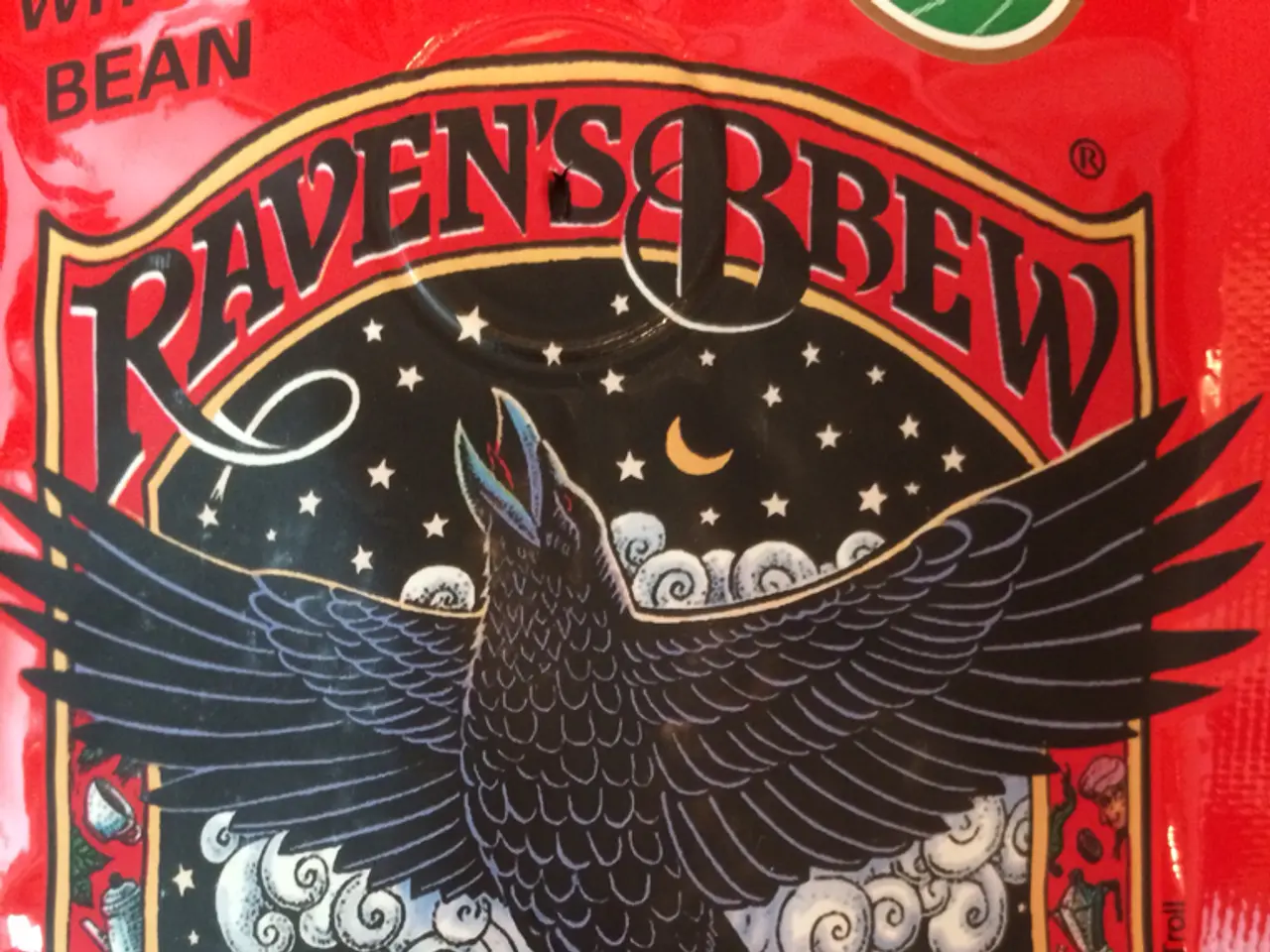Is your coffee devoid of harmful substances?
Contaminants Found in Popular Coffee Brands: A Guide for Consumers
A recent study conducted by The Clean Label Project, in collaboration with an ISO/IEC 17025-accredited lab, has revealed that popular coffee brands often contain contaminants such as heavy metals, pesticides, phthalates, and acrylamide [1][3][4][5]. Here's what you need to know about these contaminants and how to choose cleaner coffee options.
Heavy Metals
Heavy metals like lead, arsenic, mercury, and cadmium were found in all samples, with variation by origin. African coffees showed the lowest levels, while Hawaiian coffees had the highest, likely due to volcanic soil [3][5].
Glyphosate and AMPA
Glyphosate, a widely used herbicide, and its breakdown product AMPA were found in some coffees. AMPA is linked to DNA damage and liver inflammation [3]. Interestingly, AMPA was present in every organic coffee, despite glyphosate being banned in organic farming.
Phthalates
Phthalates, chemicals used in plastics and linked to reproductive issues, childhood obesity, asthma, and cancer, were detected especially in canned coffees, then pods, then bagged brands. Packaging appears to be a significant contamination source [3][4][5].
Acrylamide
Acrylamide, a chemical formed during roasting, was found in all samples at low levels and varies with roast level. Medium roasts had the highest acrylamide levels [3].
Decaffeination Processes
Some decaffeination processes use chemical solvents like methylene chloride, which is a chemical concern although residues in finished decaf coffee are regulated [2].
Choosing Cleaner Coffee Options
- Opt for brands certified by independent third parties like the Clean Label Project, which tests for over 90 contaminants including heavy metals and pesticides [1][4].
- Prefer coffee grown in regions with lower heavy metal levels (e.g., African coffees) if origin information is available [3][5].
- Choose packaging types less associated with phthalate contamination, such as bagged coffee rather than canned or pods [3][5].
- Consider organic or sustainably farmed coffees, which may reduce pesticide residues, though testing varies.
- For decaf coffee, seek brands using non-chemical decaffeination methods (e.g., water or CO2 processes) to avoid solvent residues [2].
- Stay informed through brands transparent about testing results and safety protocols.
While most contaminant levels in tested coffees are below established safety limits, there is room for improvement, and consumers can reduce exposure by choosing carefully certified brands and packaging types [3].
The coffee products were selected based on results from Nielsen, SPINS, Amazon, and organic market listings. The Clean Label Project identified 16 coffees that deliver on safety and purity: 365 Whole Foods Market Caramel Medium Roast, Starbucks Colombia (pod), Cameron's Vanilla Hazlenut, Counter Culture Forty-six, Dunkin' Hazelnut, Eight O'Clock Original Roast, Fabula Dark Roast (pod), Great Value French Roast (pod), Groundwork Organic Ethiopia, ILLY Classico (can), Kicking Horse Three Sisters, Nespresso Diavolitto (pod), Newman's Own Special Blend (pod), Peace Coffee Birchwood, San Francisco Rainforest Blend (pod), and Seattle's Best Post Alley.
[1] The Clean Label Project. (2021). The Clean Label Project's 2021 Coffee Study. Retrieved from https://www.cleanlabelproject.org/coffee-study/
[2] U.S. Food and Drug Administration. (2017). Decaffeinated Coffee. Retrieved from https://www.fda.gov/food/ingredientspackaging-labeling/decaffeinated-coffee
[3] Groopman, J. (2021). The Clean Label Project's 2021 Coffee Study: Key Findings. Retrieved from https://www.cleanlabelproject.org/coffee-study-key-findings/
[4] The Clean Label Project. (2021). The Clean Label Project's 2021 Coffee Study: Top 16 Cleanest Coffees. Retrieved from https://www.cleanlabelproject.org/coffee-study-top-16-cleanest-coffees/
[5] The Clean Label Project. (2021). The Clean Label Project's 2021 Coffee Study: Methodology. Retrieved from https://www.cleanlabelproject.org/coffee-study-methodology/
- To support health-and-wellness, consumers should choose coffee brands that have undergone third-party testing, such as those certified by the Clean Label Project, as they ensure purity and lower levels of contaminants like heavy metals and pesticides [1][4].
- Adopting a lifestyle conscious of food-and-drink safety can include preferring coffee therapies-and-treatments from regions where heavy metals are less prevalent, such as African coffees [3][5]. Additionally, choosing packaging types less associated with phthalate contamination, like bagged coffee, can help reduce exposure to harmful chemicals [3][5].




